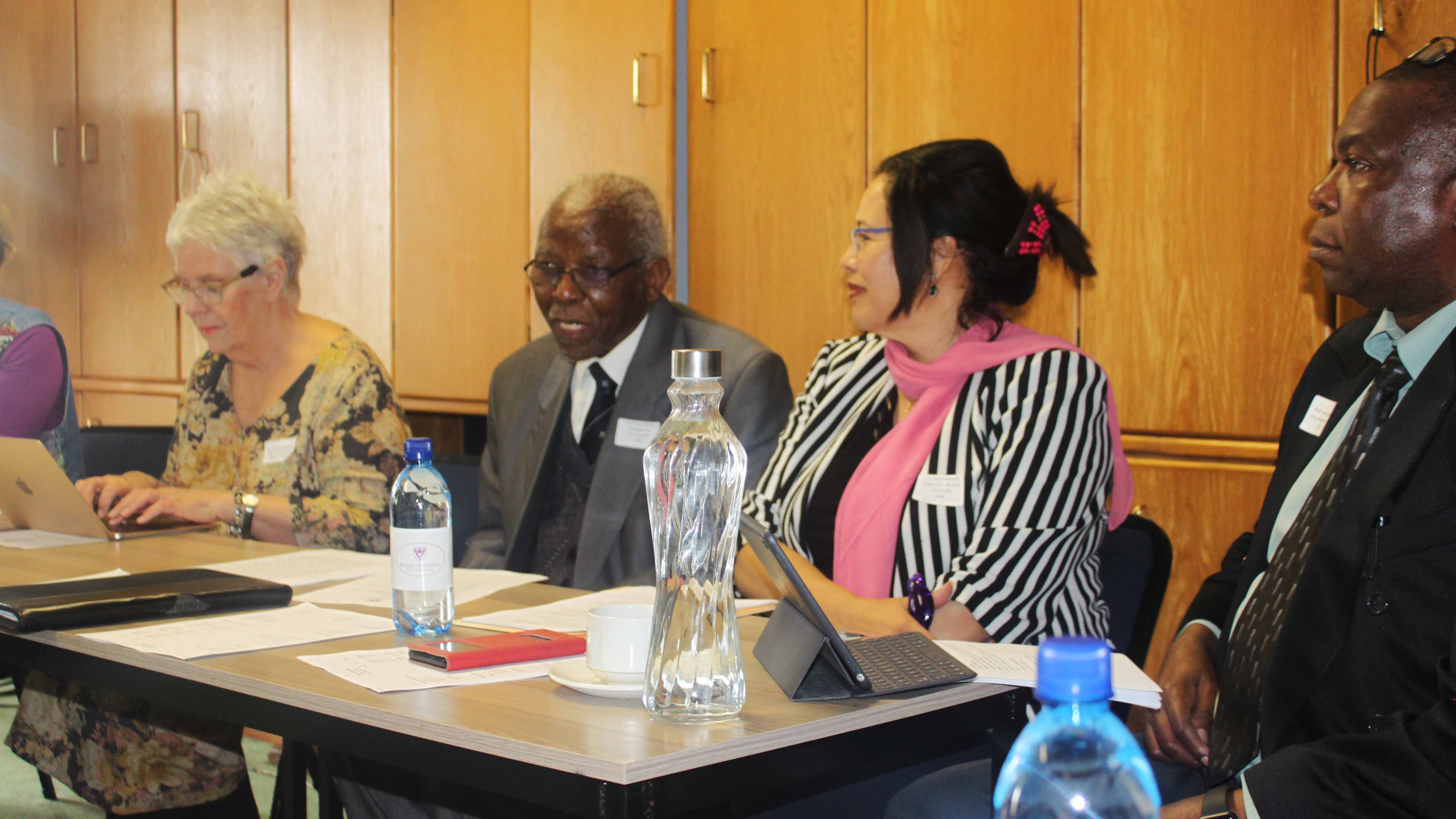
Spring day brought with it a reunion and the 68th annual Rhodes University Convocation Meeting, held jointly with the annual General Meeting of the Old Rhodian Union, at the Gavin Relly Postgraduate Village at Rhodes University.
Although Vice-Chancellor Dr Sizwe Mabizela and the President of the Old Rhodian Union, Professor Rod Walker, were unable to attend, Dr Adele Moodly, the University’s first female black Registrar, was present at the Convocation meeting for the first time.
Deputy Vice-Chancellor of Academic & Student Affairs Dr Chrissie Boughey pointed out that the demand for higher education has doubled since the early 1990s, while state funding has fallen. This means, she said, the only way for higher education institutions to survive has been through the increase of tuition fees. “Furthermore, this has taken place in the context where many do not have the means to pay fees.”
Since 2016, Rhodes University has been subject to stringent financial controls to ensure that the institution can continue. “Every effort has been made to innovate, increase efficiency, cut down on operating costs, and to collect outstanding student fees,” Dr Boughey went on. “These efforts have paid off in the form of R40million in additional funding from the Department of Higher Education and Training (DHET) to our usual state subsidy in 2018.”
Over the years, the University has benefitted from generous contributions from the DHET for the development of new infrastructure and the maintenance of existing buildings and facilities.
“This year, we’ve received approximately R380 million for upgrades and maintenance from them – an amount that far exceeded our expectations,” said Dr Boughey.
This year, Rhodes University succeeded in finalising its Institutional Development Plan (IDP), which seeks to steer the University for the next four years. The IDP has identified a new unique academic proposition for Rhodes as the only research-intensive university outside a major urban area. “Our location and status have implications for teaching, learning, research and especially for the third pillar of academic life - community engagement,” Dr Boughey added.
Also key to the IDP is the identification of a significant strength in our retention of the General Formative Degree. In the early 2000s, many universities reconfigured their academic offers to offer qualifications that prepared students for particular areas of work. “Rhodes University chose not to do this,” Dr Boughey noted. The reason for this is due to research conducted from 2010 onwards, which showed that these “vocational programmes” prepared students for very specific areas of work in that they focused on providing the knowledge and skills only necessary for particular work contexts.
“Yet, those work contexts might not exist in 10 or more years’ time, such as the pace of change in the workplace currently stands,” she explained. The Rhodes University formative degree structure means students have the knowledge to move across contexts. “And more importantly, they have the knowledge to imagine worlds that do not yet exist,” Dr Boughey added.
She ended her address by highlighting the recent negative press attention that Rhodes University has been subject to. “Many of you would have read or heard press reports about the so-called rape culture at Rhodes University. I can tell you categorically that the reports are simply not true. The University actually has a very low rate of reports of gender-based violence, in spite of what the activists or press may say.”
According to Dr Boughey, the reason for the negative reputation of Rhodes in the press is due to many factors, including the prevalence of gender-based and sexual violence in society as a whole, which leads to normalising such hugely problematic behaviour. Secondly, she said that when young people arrive at the University, they encounter programmes stressing that gender-based and sexual violence is wrong, and many are encountering this reality for the first time. This can lead to traumatisation because they themselves have suffered from it and have historically been complicit in engaging in it or had been covering it up.
Finally, Dr Boughey said, the University becomes the first space many young people first speak up about their experiences and where they can object to what has happened to them or others. This gets picked up by the press who seek to capitalise on the opportunities sensationalism provides.
“We continue to work against the scourge of gender-based and sexual violence on campus and will not relax our efforts until South Africa as a whole is a place where women's bodies are respected along with their right to wear what they like and go where they're like,” Dr Boughey affirmed. “We also work to support awareness of LGBTQI++ and to ensure that all individuals, regardless of their sexual preferences or gender identity, enjoy the freedoms enshrined in the Constitution.”
Professor James Gambiza, Vice-President of the Old Rhodian Union, continued the meeting by discussing the importance of Old Rhodian donations. “All donations made to the Old Rhodian Union help fund the children of Old Rhodians to further their studies. This initiative has so far donated over R250 000 worth of bursaries, and 90% of applicants were accepted for funding,” he said.
Mr John Gillam, Manager of Postgraduate Funding, concluded the meeting by presenting the figures for the last year’s bursaries and funding. “From December 2016 till December 2017, our funds grew by a million rand approximately. We have been able to not only fund more students but provide them with bigger bursaries,” he said.
